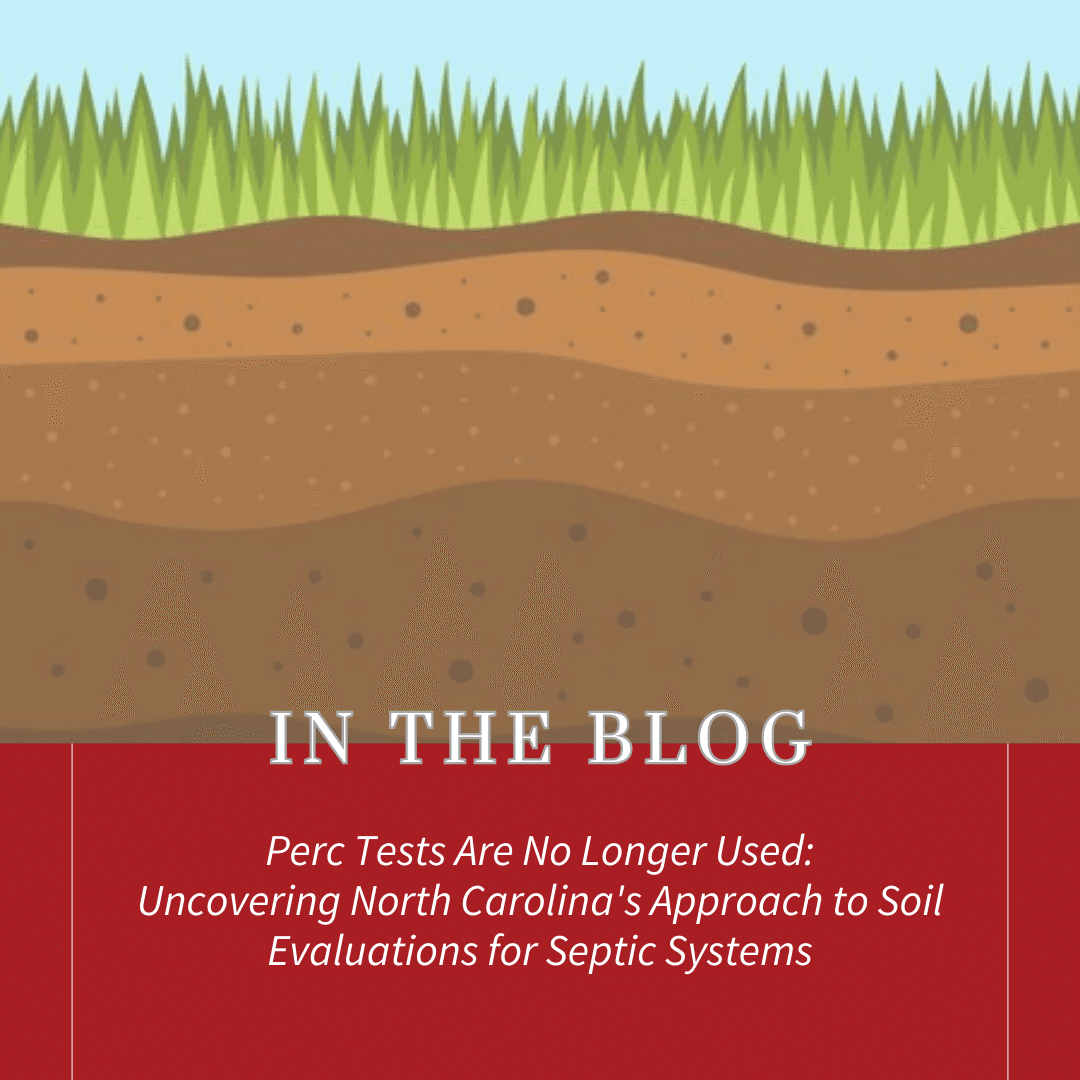When it comes to assessing land for septic systems, the details matter! Traditionally, a "perc" or "perk" test—a shorthand for percolation test—was the standard. This test involved digging a hole and measuring how quickly water percolates out and into the surrounding soil. However, North Carolina has turned the page on this method. Now, the state relies on comprehensive soil evaluations to determine the viability of soil for septic systems.
Soil Evaluations
This shift offers numerous benefits, chief among them being reliability. Soil evaluations consider a wider array of environmental factors that a simple perk test might miss. For instance, during dry spells, a perk test might yield results that don't account for the challenging conditions of a high-water table or the presence of expansive clays, which can significantly affect the performance of a septic system. Regardless of the weather, a soil's morphology offers clues to an underlying seasonal water table, and an experienced soil scientist or environmental health specialist can spot. This level of detailed analysis ensures that decisions are made on a thorough understanding of the soil conditions, leading to better-designed septic systems that are less prone to failure, regardless of changing seasons or weather conditions.
Design and Functionality Impacts
The intricacies of soil evaluations have far-reaching implications on the design and installation of your septic system. These thorough investigations delve into the unique characteristics of your property's soil, which in turn, dictate the most effective septic solution. For instance, soils with faster absorption rates may be suited for conventional systems, while those with slower rates or high-water tables might require advanced systems, like mound or aerobic treatment units. The beauty of soil evaluations lies in their ability to match the septic system to the soil's capabilities, ensuring that it functions at peak efficiency. This approach not only optimizes the functionality of your septic system but also safeguards the environment and your investment in your property.
Looking Ahead
In recent years, the industry has evolved to enhance and diversify the resources available to owners and developers for conducting soil evaluations. Beyond the services provided by local environmental health departments, two more avenues can provide soil evaluation, design, permitting, and inspection for septic system installations: professional Engineers and AOWE Licensed Soil Scientists.
More to Come
Keep an eye out for our upcoming blog posts that will provide in-depth insights into soil evaluations and the expanded support network now at your disposal. Our expertise is just a call away, ready to guide you through each step and guarantee a smooth journey to a well-designed and properly installed septic system.


